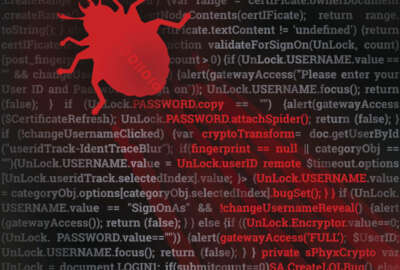To listen to the Federal Newscast on your phone or mobile device, subscribe on PodcastOne or Apple Podcasts. The best listening experience on desktop can be found using Chrome, Firefox or Safari.
- A recent Supreme Court decision concerning government employees paying union dues is getting responses from federal employee unions and anti-union organizations. The Office of Personnel Management asked the Federal Labor Relations Authority how agencies can deduct union dues in light of the 2018 decision, which found local and state government workers can’t be forced to pay union dues. The National Right to Work Foundation said federal employees who signed a dues deduction authorization before last year’s decision cannot legally pay their union. Federal employee unions have said the Supreme Court decision doesn’t apply to federal workers. (National Right to Work)
- The Department of Veterans Affairs has officially agreed to use the Defense Logistics Agency’s supply chain management system. The partnership allows VA to use DLA’s Defense Medical Logistics Standard Support commodity ordering system to buy medical and surgical items, cleaning equipment and other construction materials. The two agencies will combine resources to build a centralized ordering system for VA. One of its medical centers in Illinois piloted the DLA system back in March. Both agencies said the joint agreement will save veterans and military members in health care costs. (Department of Veterans Affairs)
- A bipartisan group of congressional members want more answers from VA about its challenges to properly pay veterans’ non-VA emergency care claims. VA’s inspector general recently highlighted the department’s processing errors. The IG said VA improperly denied or rejected about a third of emergency care claims under a recent review. Lawmakers said they’ve worked veterans’ emergency care claim denials themselves and experienced challenges firsthand. The IG said VA failed to inform some 60,000 veterans that their claims had been rejected or denied. (House Veterans Affairs Committee)
- After the Centers for Disease Control and Prevention shut down the Army Medical Research Institute of Infectious Diseases at Fort Detrick in Maryland last month, one of the state’s senators wants to know when the lab can reopen and why the Army didn’t report it. Sen. Chris Van Hollen (D) said he learned about the closure from press reports. He sent a letter to Acting Secretary of the Army Ryan McCarthy to find out what the CDC found and if anyone was exposed to a dangerous biological agent due to issues with the lab. (Sen. Chris Van Hollen)
- The Army swore in its 40th chief of staff on Friday. Gen. James McConville is now the highest ranking person in the Army, having taken over for Gen. Mark Milley, who is moving on to be the next Chairman of the Joint Chiefs of Staff. McConville joined the Army as an officer in 1981. He was one of the key architects in the plan to modernize the Army by 2028. Part of that plan included the creation of Army’s Futures Command, which completely changes the way the service buys weapons. The command is just finishing up its first year in existence.
- U.S. Special Operations Command is conducting a comprehensive review of its culture and ethics. SOCOM Cmdr. Gen. Richard Clarke said recent incidents have called special operations ethics into question and threaten the trust placed in the command. The review is scheduled to be finished by this fall. The review will focus on how the command selects and assesses its employees, how it grows its leaders and how it addresses ethical failures when they happen. The review begins immediately and will conclude this fall.
- Agencies implementing artificial intelligence tools need to strike a balance between regulation and innovation going forward. That’s the key takeaway from the National Institute of Standards and Technology’s latest guidance on AI. NIST has also called for better standards for measuring the performance and reliability of AI tools. The report stems from an executive order President Donald Trump signed in February. (National Institute of Standards and Technology)
- The General Services Administration plans on using its upcoming agencywide IT services contract to take the 35-to-45 contracting writing and management systems the Federal Acquisition Service uses today down to one centralized system. GSA told vendors that is has decided to move the Contract Acquisition Life-Cycle Management or CALM system under the yet-to-be awarded IT services procurement vehicle known as COMET. The decision, announced during an industry day webinar last week, means CALM will be an agile task order under the multiple award vehicle. The acquisition strategy also means it will take 3-6 months longer to get the contracting writing system awarded. (Federal News Network)
- The Census Bureau has identified more than half of the addresses that will participate in next year’s decennial count, all before sending its seasonal workers out into neighborhoods. Using satellite imagery from the National Geospatial-Intelligence Agency, the bureau has already tracked down 65% of the addresses in the country. That leaves another 50 million addresses for bureau canvassers to verify between now and mid-October. (Federal News Network)
- The State Department is partnering with 15 countries to use technology to combat wildlife trafficking. The Zoohackathon events will be held at zoos wildlife organizations, technology start-up facilities, and education centers in placed like Cairo, Egypt and New Delhi, India. They will bring together teams of university students, software developers and coders and others to tackle wildlife conservation problems. (Department of State)
- A federally appointed board hosts a forum for state and local election officials to explore election security. The Election Assistance Commission this Thursday will bring voting system vendors and test labs together with local government officials. Panel presentations will discuss the latest cybersecurity weaknesses and how to patch them. The commission’s election security forum, at its headquarters in Silver Spring, Maryland, is also open to the public. Congress established the bipartisan Commission in 2002, after voting machine problems in the 2000 presidential election. (Election Assistance Commission)
Copyright
© 2024 Federal News Network. All rights reserved. This website is not intended for users located within the European Economic Area.




